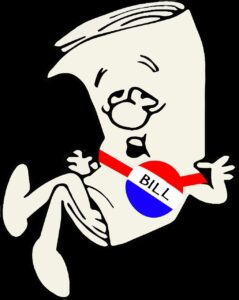2024 is the second and final year of the current two year legislative session. Several bills that have either gone through their first readings or have yet to be heard are expected to be voted on later next year. Some, if not all of these bills, may eventually become law. Some of the more notable bills will be discussed further below, but before we do that it might be useful to provide an overview of how the state government works. Who and what makes up the state government? What is the role of the Governor? How do bills get introduced into the legislature? What happens to them after being introduced?
How the Massachusetts state government works
Some interesting facts about the state’s government
- Massachusetts has the oldest parliament in the world after Britain, and is called the General Court;
- The government’s legislature is a bicameral system: the House of Representatives consisting of 160 representatives and the Senate, with 40 senators.
- The Governor represents the Executive and is elected every four years.
- Of the two major parties, Democrats have controlled both chambers for many years, but Governors have switched from Democrat to Republican more frequently. The current Governor is a Democrat, Maura Healey, and she follows Charlie Baker, a moderate Republican, who served two terms of four years each.
- Bills can be filed by any member of either chamber or by the Governor. There is typically a deadline for bills to be filed by legislators, which is 5 p.m. on the third January of the first of the two year sequence for legislation. The first year is the ‘odd’ numbered year, making 2024 the second year in the current legislative sequence. Governors, meanwhile, can file a bill at any time.
- Bills are first reviewed by a Joint Committee and may be modified before proceeding through three readings in the chamber that the bill was originally filed in. These three readings involve debate about the merits or otherwise of each bill and after debate before the full chamber passed over to the other chamber to repeat the whole process. A bill may fail to proceed at any stage if the vote goes against it. A bill must pass in both chambers before it can go to the Governor for final approval.
- The Governor may sign the bill into law, veto it, or send it back to the legislature for modification;
- Bills that have been signed into law or have become law without the Governor’s signature typically come into effect either 30 days or 90 days after the date of signing, days counting consecutively, so disregard weekends and public holidays.
Bills pending in 2024
Any of the following pending bills could become law in Massachusetts next year.
House Bill 1925(Minimum wage in Massachusetts): A House bill which seeks to raise the state minimum wage from its current $15 an hour to $20 an hour over a five year period. The five year period would end on January 1st 2028. The justification for the Bill is that the rate of inflation and associated cost of living increases means that the current minimum wage is too low. The bill also seeks to tie the minimum wage increases to the rate of inflation. The same bill also seeks to raise the tipped wage (e.g. of any worker who primarily gains income from tips, e.g. bar or restaurant staff) to $12 an hour over five years.
House Bill 1838 (Overtime for Healthcare Workers): if this bill becomes law, then it would prohibit employers from making healthcare workers work overtime, except in emergency conditions when the life of a patient may be at stake. Even in an emergency situation, health workers would be encouraged to offer their work voluntarily rather than be forced to work overtime.
House Bill 1957 (Counting Overtime): This bill seeks to make employers pay the overtime rate of one and a half normal wages to any worker who works more than 8 gours in a day. The current law obliges employers to pay the overtime rate for any hours over 40 in a 7 day period.
House Bill 1855 (Pending Salary at Employee’s Death): This bill seeks to absolve employers from the responsibility for payment of any of their employees’ wages who have died. The law at present means that employers must wait for probate to end, or intestacy litigation to be resolved. Employers would only have to pay out any remaining wages to the surviving family.
House Bill 1099 (Organization of Ride-share App Drivers): This bill seeks to allow ride share and other transportation network drivers to organize and form labor unions to advance their interests, such as standardized benefits and employment qualifications.
House Bill 1944 (Treble Damages Avoidance): This bill seeks to remove the penalty imposed on employers that fail to pay out due vacation pay and final wages on the termination day of an employee. Currently, the law allows employees to seek treble damages under the Massachusetts Wage Act (MWA) if they pursue a lawsuit against their employee for amounts not paid by their final day of employment. The bill if it becomes law will allow employers to be given an intermediary warning by the employee and then have 15 days to settle the amount owed to the employee. The warning must stipulate what the employer is expected to have paid on termination.
Ballot initiatives
In addition to these bills that were all filed in the House of Representatives, there are two pieces of legislation which will be decided by ballot in the November 2024 elections. In a ballot initiative, proposed changes to the law can come from community representatives. In this case, the initiative has been brought by a labor union and an industry-backed group. The two initiatives have already been certified by the state’s Attorney General, Andrea Campbell. The initiatives seek to allow voters to decide whether ride-share drivers should be treated as employees or independent contractors and whether they should be allowed to unionize and be guaranteed specific benefits. These initiatives depend on gaining sufficient signatures and not being dismissed by the state’s Supreme Judicial Court.
For more information, visit our website Mucci Legal or contact us for a free initial legal consultation today.


